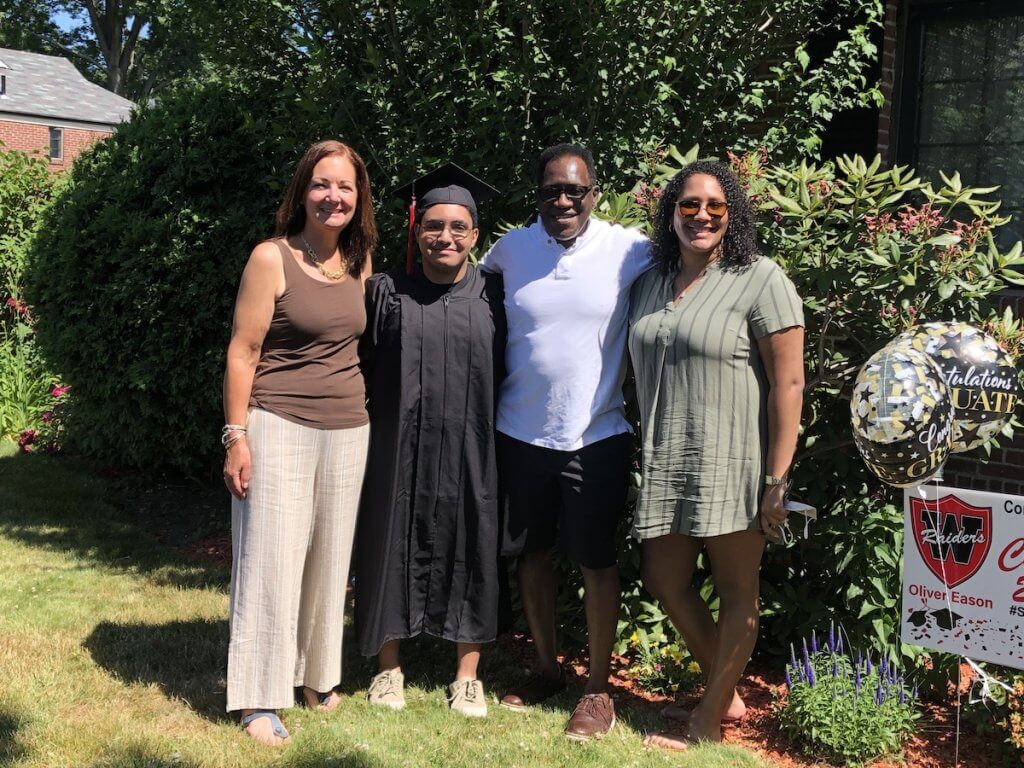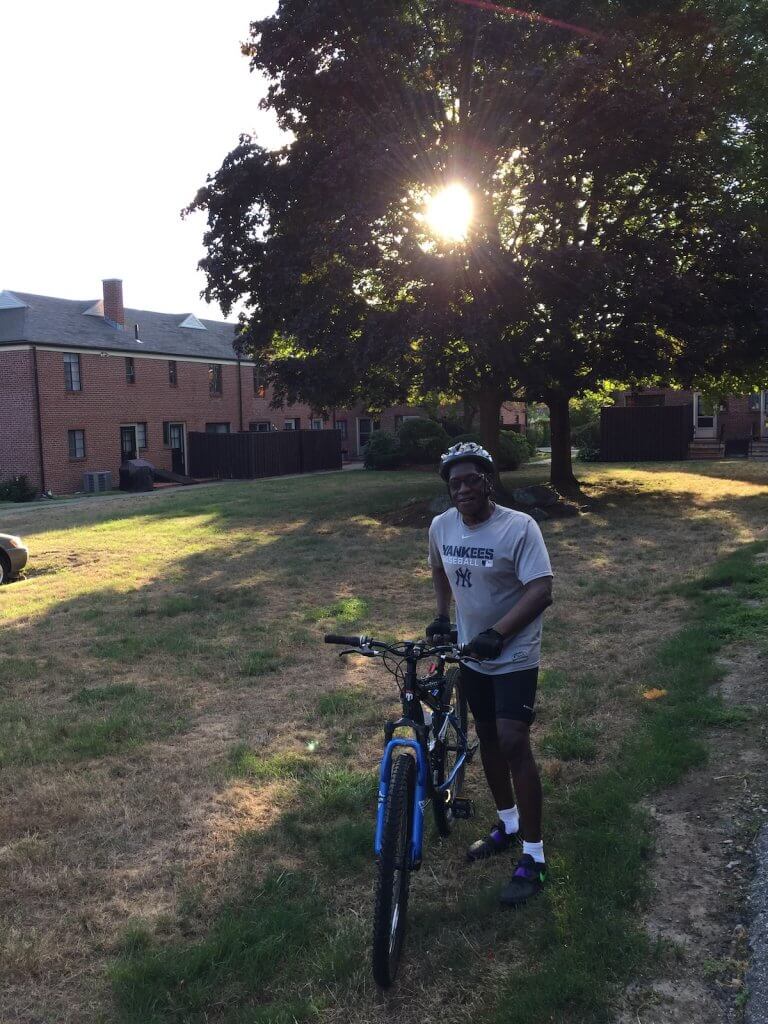OK Eason doesn’t mind jokes about his unique first name, especially lately. Healthy and thriving more than 30 months after a massive tumor was found in his brain, Eason takes pleasure in telling people that he is more than just “O.K.”
Eason, 69, was diagnosed with a glioblastoma in February 2018. He had surgery immediately, and one month later joined a clinical trial. His disease has stayed stable, with no perceptible tumor growth, and he has remained on the trial ever since.
This is an excellent response for someone in Eason’s situation. Glioblastomas are the most common primary cancer of the brain, and the most aggressive. These tumors contain a variety of rapidly adaptive cells, which makes them more challenging to treat. Tumors usually come back within a year, requiring that patients find a new treatment plan.

In Eason’s case, however, no such change has been needed. Every Monday, at 7:30 a.m., he takes the short drive to Dana-Farber/Brigham and Women’s Cancer Center (DF/BWCC). He has bloodwork, meets with his nurse practitioner Jenn Stefanik, NP, and then receives an hour-long chemotherapy infusion. Each eight weeks his visit also includes scans and a meeting with oncologist David Reardon, MD, clinical director of the Center for Neuro-Oncology at DF/BWCC.
Eason gladly follows the routine, knowing his good fortune at enjoying long-term success. His only side effect is a day or so of fatigue after each infusion, and he still has the strength for activities like cycling. He is also considering returning to his job as a central office technician for a telecommunications company.
“I’m doing my part, the drugs are doing their part, and we’re meeting in the middle,” says Eason. “There have been lots of peaks, and not many valleys.”
Warning signs
At first Eason wasn’t worried. He was occasionally dropping his fork, or the phone, but still felt fine and was going to work every day. When he began getting increasingly tired, forgetting things, and developed some right-side weakness, he chalked it all up to a change in his work schedule from evening to day shifts.
Then, one day, he didn’t come home from work.
“He got disoriented, his phone was out of batteries, and he called me from the library,” recalls Maria, Eason’s wife. “That’s when I said enough is enough and took him to the emergency room.”
An MRI displayed a mass in Eason’s brain, which surgery confirmed was cancer. Surgeons removed as much of the tumor as possible, and while Eason recovered the family celebrated son Oliver’s 16th birthday in Beth Israel Deaconess Medical Center.
Referred to DF/BWCC for further treatment, Eason consulted with a multidisciplinary team led by Reardon and joined the clinical trial. One of 20-25 trials regularly underway at the Center for Neuro-Oncology, the phase II study is testing whether standard care for newly-diagnosed glioblastoma — radiation and the drug temozolomide — can be improved with the addition of a second drug, bavituximab. The hope is that bavituximab will activate the patient immune system to attack the cancer cells.
“Our available treatments help most patients, but unfortunately the benefit is not durable,” says Reardon, who in addition to seeing patients leads research into immunotherapy agents like bavituximab. “Immunotherapy approaches offer the hope of better and more durable treatment benefit for our patients.”

Family first
Coming to DF/BWCC so often, Eason has grown close with his care team — especially Stefanik. They share a love of the New York Yankees, and catch up on baseball and each other’s kids (the Easons also have a daughter, Oriana) during their sessions. Maria is unable to accompany Eason to appointments these days due to COVID-19 restrictions, so Stefanik calls her so she can listen in.
“OK always has a wonderful attitude, and is very interested in doing things to help make him stronger, like exercising and eating a healthier diet,” says Stefanik. “He also has an excellent support system in Maria and his family, which is so important with a challenging disease like this.”
[Learn more about how Dana-Farber is keeping patients and staff safe during COVID-19.]
Like everybody else, Stefanik has kidded Eason about his name — which, as he explains it, comes from being the eighth child born in his family. “My mother said, OK, that’s it.”
When it comes to the trial, however, Eason is more than just OK. He knows he has already beaten the odds, and milestones like Oliver’s recent high school graduation are eagerly awaited and greatly cherished.
“Now I have a new goal,” he says. “Seeing him graduate college.”

My son was a patient at Boston children’s for burkitts lymphoma that had Been misdiagnosed at a children’s hospital in Miami. This relapse caused more chemo and more radiation. Dr Cindy kretschmar was his amazing Dr in Boston!
As an adult, he had a seizure and was diagnosed with a glioblastoma multiforme. After receiving all treatment available at the NIH, he lost the valiant battle.
It makes m happy to hear stories and reports of successful treatments!!!
All the best.
Hi,
Can you please let me know if there is any clinical trial open for GBM?
Hello Prash,
Thank you for reading. You can find more information about clinical trials here: https://www.dana-farber.org/research/clinical-trials/
Wishing you all the best,
DFCI
Praise the Lord. And God bless and guide your medical team and researchers. And you keep on putting one foot in front of the other and moving forward!!